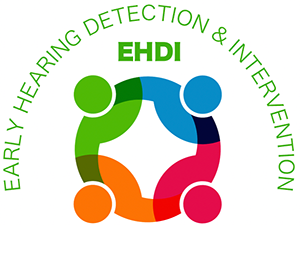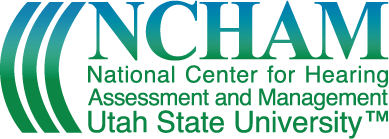Last Modified: 06/15/2023
Collaboration Between EHDI and Other Programs for Infants and Young Children Who are Deaf or Hard of Hearing
Many state and federal agencies serve infants and young children who are deaf or hard of hearing (DHH) with Part C programs, funded by the Individuals with Disabilities Education Act (IDEA) being one of the most involved. Data sharing among programs that serve children who are DHH can help children achieve optimal outcomes. Data on services provided, child and family outcomes, the nature of services, length of time in services, and family supports can also inform program evaluation and improvement efforts for these programs.
While almost everyone agrees that data sharing between EHDI, Part C, and other programs would be beneficial, it has been difficult for state and local programs to agree on procedures for sharing such data in a way that appropriately protects personal identifiable information (PII) and is consistent with state and national statutes and rules. But if data are not shared, it is impossible to accurately assess progress towards national benchmarks and objectives for children and their families in both Part C and EHDI programs.
More frequent use of appropriate Data Sharing Agreements among Part C, EHDI, and other programs is essential for the continued improvement of all programs. Examples of Memoranda of Understanding and Data Sharing Agreements that have been developed to enable appropriate sharing of data among various state-funded programs that serve infants and young children who are DHH (with particular emphasis on Part C and EHDI) are shown below. We welcome examples from additional states. If you would like to share, please email your documents to ntrc.helpdesk@usu.edu so that they can be posted on this page to serve as valuable examples to other states and territories.
Memoranda of Agreement
Many states have developed policies with EHDI stakeholders so to enable them to work together for effectively. Click on the following links to view documents from various states describing their policies. These documents go by different names as determined by the specific state (e.g., memorandum of agreement, memorandum, of understanding, interagency agreement, joint powers agreement).
- Connecticut - Memorandum of Agreement [PDF]
- Idaho – Interagency Agreement [PDF]
- Massachusetts – Memorandum of Agreement [PDF]
- Missouri – Interagency Agreement [PDF]
- Pennsylvania – Memorandum of Agreement [PDF]
- Wisconsin – Memorandum of Understanding [PDF]
Data Sharing and Reporting
Some states have developed forms, procedures and agreements to expedite the exchange of information among providers, such as forms to report diagnostic results to EHDI. State procedures that describe rules for accessing shared data systems are also provided below. Click on the following links to learn about individual state’s policies and practices.
- Arizona – Data Sharing Agreement [PDF]
- Florida – Data Use Agreement [PDF]
- Louisiana – Data Sharing Agreement [PDF]
- Michigan – Sample Data Sharing Agreement [PDF]
- New Jersey – Data Sharing Agreement [PDF]
- Oklahoma – Reporting Rules [PDF]
- Utah – Data Sharing Agreement [PDF]
- Washington – Information Sharing Agreement [PDF]
Coordinated Referral Forms
States have worked together to develop consent forms that reduce the number of individual forms needed to exchange information among providers who are serving families. Click on the links below to learn about individual state’s policies and practices.
- Hawaii – Release of Information Form [DOC]
- Idaho – Release of Information Form [PDF]
- Mississippi – Release of Information Form [PDF]
- Missouri – Explanation of Request for Parental Consent [PDF]
- Virginia – Part C Referral Form [PDF]
- Nebraska – Release of Information Form [PDF]
- Washington – Resource Referral Form [DOCX]


